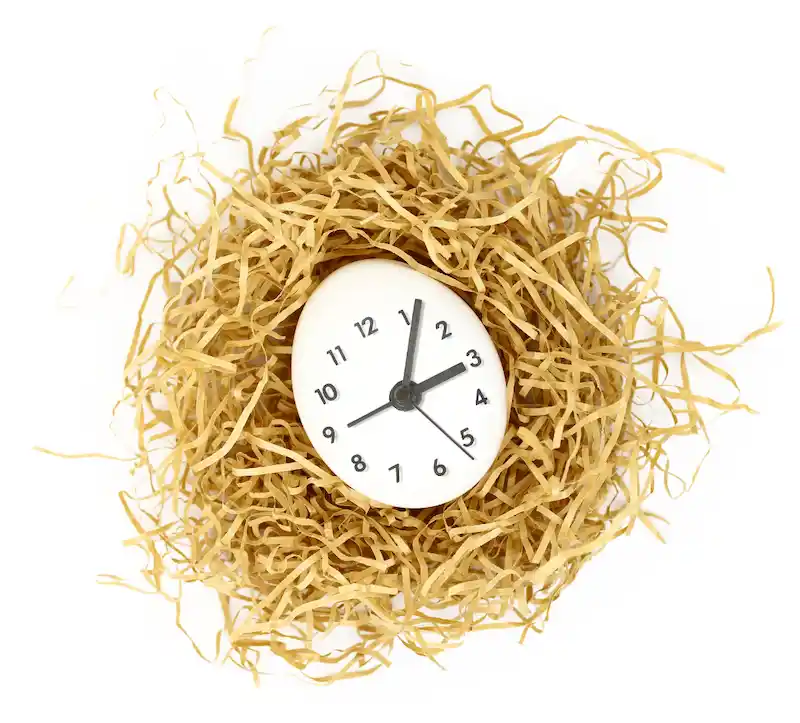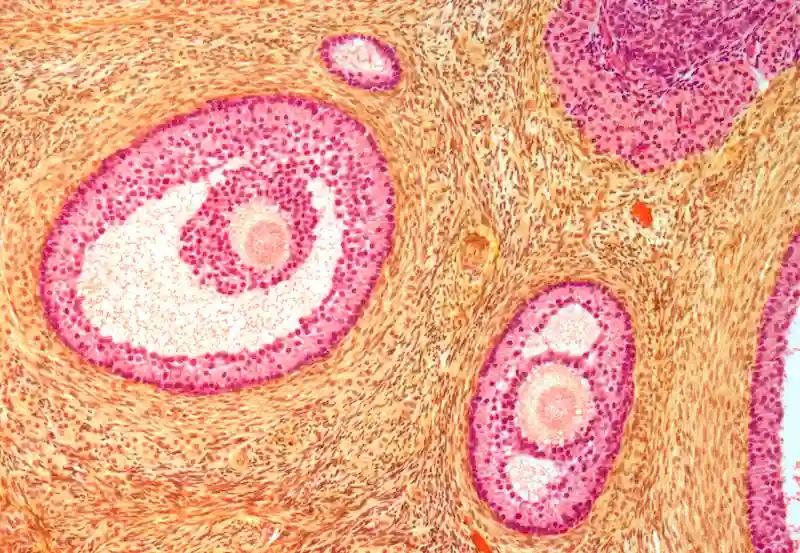A woman's egg count is crucial in fertility and family planning. This comprehensive blog post will delve into a woman's egg count, exploring its definition, how it is determined, and its significance in fertility. We will also cover factors that can affect a woman's egg count, the impact of age on egg count, and how to test and interpret your egg count. Additionally, we will explore what happens when a woman's egg count is low, whether it is possible to increase it, and the fertility treatments available for women with low egg counts. Finally, we will touch upon egg freezing as a solution for women with low egg counts.
What is A Woman's Egg Count?
A woman's egg count refers to the number of eggs in her ovaries at any time. These eggs are crucial for reproduction as they are released during ovulation so sperm can fertilize them and result in pregnancy. A woman's egg count is discovered through a medical procedure called antral follicle count (AFC), which involves counting the number of small follicles in the ovaries using ultrasound imaging.
Knowing your egg count is vital, as it directly correlates with fertility. A higher egg count generally indicates better fertility potential, while a lower egg count may suggest reduced fertility or potential difficulties in conceiving naturally. A clear understanding of your egg count can enable you to make well-informed choices regarding family planning goals.
How Many Eggs Does A Woman Have?
On average, a woman is born with approximately one to two million eggs in her ovaries. However, this number decreases significantly as she ages. By the time she reaches puberty, only approximately 300,000 to 500,000 eggs remain. The number of eggs continues to decline throughout her reproductive years, with a more rapid decrease occurring after age 35.
It is important to note that every woman is unique, and the number of eggs she has can vary. Some women may have a higher egg count than others, while some may have a lower count. Understanding your egg count can help determine how it may impact your fertility journey.
Factors That Affect A Woman's Egg Count
- Age
- Smoking
- Chemotherapy
- Autoimmune disorders
- Genetic factors
- Environmental toxins
- Obesity
- Polycystic ovary syndrome (PCOS)
- Endometriosis
Several factors can influence a woman's egg count. Genetic factors play a significant role, as a woman's number of eggs is determined at birth. Some women may have a genetic predisposition to a higher or lower egg count. Unhealthy lifestyle habits, including smoking, excessive alcohol consumption, and a poor diet, can harm egg count. Furthermore, medical conditions such as polycystic ovary syndrome (PCOS) and endometriosis can also affect egg count and overall fertility.
It is essential to be aware of these factors and make conscious choices that promote reproductive health. Quitting smoking or vaping, achieving a healthy weight, and managing underlying medical conditions can help optimize egg count and improve fertility outcomes.

Age and Egg Count: What You Need to Know
Age is one of the most significant factors that affect a woman's egg count. As a woman ages, her egg count naturally decreases due to ovarian aging. This decline in egg quantity is accompanied by a decrease in egg quality, making it more challenging to conceive naturally and increasing the risk of chromosomal abnormalities in embryos.
Understanding the impact of age on egg count is crucial for fertility planning. Women who wish to have children should start their family at a younger age when their egg count and quality are optimal. Delaying pregnancy can significantly reduce the chances of conceiving naturally and may require assisted reproductive technologies through a fertility specialist or OBG-YN.
Do We Have More Time To Conceive Than We Think?
Some evidence suggests that women may be entering Menopause later in life today compared to 20 years ago. Several studies have found a trend towards later age at Menopause in recent years.
For example, a study published in the journal JAMA in 2019 analyzed data from over 16,000 women and found that the average age at natural Menopause had increased by about one year over the past two decades. Another study published in the journal Menopause in 2017 also reported a similar trend of delayed menopause onset.
This shift is unclear, but several factors may contribute to it. Improved healthcare and living conditions, better nutrition, and advancements in medical technology may all play a role. Additionally, women today tend to have fewer children and use hormonal contraceptives more frequently, which could potentially affect their reproductive hormones and delay Menopause.
However, individual experiences of Menopause can vary greatly, and not all women will experience a delay in menopause onset.
How To Test Your Egg Count
There are several methods available to test a woman's egg count. The most common method is antral follicle count (AFC), which involves an ultrasound examination to visualize and count the number of small follicles in the ovaries. Another method is anti-Müllerian hormone (AMH) testing, which measures the hormone level produced by the cells surrounding the eggs in the ovaries. Both methods provide valuable information about a woman's ovarian reserve and can help assess fertility potential.
Consult a healthcare provider or fertility specialist when considering testing your egg count. They can guide you in choosing the most appropriate method based on your circumstances and provide an interpretation of the results.
What is a Normal Egg Count?
A regular egg count can vary depending on several factors, including age, genetic predisposition, and individual health. However, as a general guideline, an average egg count is typically around 15 to 30 antral follicles or an AMH level of 1.0 to 4.0 ng/mL. It is important to note that these ranges are not definitive and can vary between individuals.
Genetic predisposition, lifestyle choices, and underlying medical conditions can influence the normal range for each woman. Therefore, it is crucial to have an individualized assessment of your egg count and consult with a healthcare provider or fertility specialist for personalized guidance.
What Happens When A Woman's Egg Count is Low?
When a woman's egg count is low, it can significantly impact her fertility. A low egg count may indicate diminished ovarian reserve, meaning fewer eggs are available for fertilization. Having fewer eggs available can make it more challenging to conceive naturally and may require assisted reproductive technologies such as IVF.
In addition to reduced fertility potential, a low egg count also increases the risk of chromosomal abnormalities in embryos, which can lead to miscarriages or genetic disorders in offspring. It is vital for women with low egg counts to seek medical advice and consult with a fertility specialist to explore their options and discuss the most appropriate treatment plan.

Ovarian Follicles
Light micrograph of a section through secondary follicles in an ovary. Orange: developing eggs (oocytes). Light Pink: fluid-filled cavity (follicular antrum). Dark Pink: granuloma cells.
Why Does a Low Egg Count Increase The Risk of Chromosomal Abnormalities?
Decreased egg count, also known as diminished ovarian reserve, can increase the risk of chromosomal abnormalities in the following ways:
- Advanced maternal age: As women age, the quality and quantity of their eggs decline. Older eggs are more prone to having chromosomal abnormalities, such as aneuploidy (an abnormal number of chromosomes). Errors can occur during egg division (meiosis), leading to an unequal distribution of chromosomes.
- Accumulation of genetic mutations: Over time, eggs are exposed to various environmental factors and accumulate genetic mutations. These genetic mutations can affect the integrity of the chromosomes and increase the risk of chromosomal abnormalities.
- Imbalanced hormone levels: Low egg count is often associated with imbalanced hormone levels, particularly follicle-stimulating hormone (FSH). Elevated FSH levels can indicate decreased ovarian function and reduced egg quality. Hormonal imbalances have the potential to disrupt the natural progression of egg development, leading to an increased risk of chromosomal abnormalities.
- Poor egg quality: Poor egg quality often accompanies diminished ovarian reserve. Poorly developed or immature eggs are more likely to have chromosomal abnormalities. This outcome can be due to impaired DNA repair mechanisms or other cellular processes that ensure proper chromosome segregation during meiosis.
It is important to note that while low egg count increases the risk of chromosomal abnormalities, it does not guarantee that a pregnancy will result in a chromosomally abnormal fetus. However, it does raise the chances, which is why women with diminished ovarian reserve may face difficulties conceiving or have a higher risk of miscarriage or having a child with a chromosomal disorder such as Down syndrome.
Can You Increase Your Egg Count?
While increasing the number of eggs a woman has is impossible, specific lifestyle changes may help optimize egg quality and fertility. Adopting a healthy lifestyle encompassing consistent physical activity, a well-rounded diet, and effective stress management can benefit reproductive health. Furthermore, abstaining from smoking and limiting alcohol intake can enhance fertility outcomes. These lifestyle changes may not directly increase egg count but can create a more favorable environment for the remaining eggs.
Fertility Treatments for Low Egg Count
For women with low egg counts who are struggling to conceive naturally, there are several fertility treatments available. A widely used method in IVF treatment is ovarian stimulation, whereby medications are administered to encourage the ovaries to supply multiple eggs for retrieval. These medications significantly increase the likelihood of successful fertilization and pregnancy.
Another option is donor eggs, where eggs from a young and healthy donor are used for fertilization. Donor eggs can be a viable solution for women with very low egg counts or poor egg quality.
Consider the pros and cons of all treatment options and consult with a fertility specialist to determine the most proactive approach for your unique circumstances.
Egg Freezing: A Solution for Women With A Low Egg Count
Egg freezing, commonly known as oocyte cryopreservation, has emerged as an option for women with low egg counts or those who wish to preserve their fertility for future use. This procedure involves egg retrieval, freezing, and storing for later use.
Egg freezing allows women to preserve their future fertility and potentially increase their chances of successful pregnancy in the future. Consider the benefits and risks, including the cost, success rates, and potential emotional implications. Discussing every aspect with a fertility specialist can provide a comprehensive understanding of egg freezing and help you make an informed decision.
Taking Control of Your Reproductive Health
Understanding a woman's egg count is crucial for fertility planning and taking control of reproductive health. Knowing your egg count empowers you to make informed choices regarding family planning, seek necessary medical advice, and explore various fertility treatment options. You should consult a healthcare provider or fertility specialist who can offer personalized guidance based on your unique circumstances. Taking proactive steps towards understanding and optimizing your reproductive health can increase the chances of achieving your desired family goals.
FAQs
What is a woman's egg count?
A woman's egg count refers to the number of eggs in her ovaries at any given time.
How many eggs does a woman have?
The number of eggs a woman has varies and declines with age. At birth, a baby girl has around 1-2 million eggs. By puberty, this number has decreased to about 300,000-500,000. When a woman reaches Menopause, she may have as few as 1,000 eggs left.
Why is a woman's egg count important?
A woman's egg count is an important factor in her fertility. The more eggs she has, the higher her chances of getting pregnant. A low egg count can make it more difficult to conceive naturally and may require fertility treatments.
How can I find out my egg count?
A woman can determine her egg count through a blood test that measures her anti-Mullerian hormone (AMH) levels. This test can estimate the number of eggs a woman has left.
Can a woman increase her egg count?
There is no known way to increase the number of eggs a woman has. However, lifestyle changes can improve overall fertility and egg quality, such as maintaining a healthy weight, quitting smoking, and reducing alcohol consumption.
What affects a woman's egg count?
The age of a woman is the most crucial determinant of her egg count. Other factors impacting egg count include genetics, medical conditions, environmental factors, and specific treatments such as chemotherapy.
- Protecting Your Health: Choosing A Sperm Bank Over Natural Insemination
- Hatching a Plan: Learning The Basics About Assisted Hatching in IVF
- Navigating GYN Surgery Before Artificial Insemination
- PGT Testing and Its Role in IVF Treatment
- The Ultimate Guide To Where You Can Donate Sperm In All 50 States

